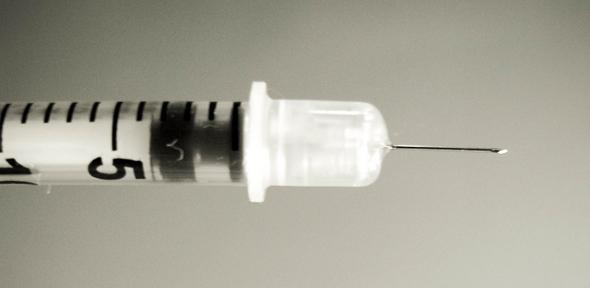
Type 1 diabetes is one of the most common chronic diseases in children and there is a rapid increase in the number affected each year. About 400,000 people in the UK are affected, 29,000 of them children. In type 1 diabetes, the body’s own immune system mistakes the insulin producing cells of the pancreas as harmful, attacks and then destroys them. The result is a lack of insulin, which is essential for transporting glucose from the blood into cells. Without insulin, glucose levels in the blood rise, causing short term and long term damage: hence patients have to inject themselves several times a day with insulin to compensate.
In a study published today in the open access journal PLOS Medicine, a team led by researchers from the JDRF/Wellcome Trust Diabetes Inflammation Laboratory at the Cambridge Institute of Medical Research used a drug to regulate the immune system with the aim of preventing a patient’s immune cells attacking their
The drug, aldesleukin, recombinant interleukin -2 (
Critical to this approach was to first determine the effects of single doses of aldesleukin on Tregs in patients with type 1 diabetes. To achieve this the team employed a state-
The researchers also found that the absence of response of some participants in previous trials may be explained by the daily dosing regimen of aldesleukin used. The current trial results suggest that daily dosing results in Tregs becoming less sensitive to the drug, and the recommendation from the study is that the drug should not be administered on a daily basis for optimal immune outcomes.
«Type 1 diabetes is fatal if left untreated, but the current treatment — multiple daily injections of insulin — are at best inconvenient, at worst painful, particularly for children," says Dr Frank
«Our work is at an early stage, but it uses a drug that occurs naturally within the body to restore the immune system to health in these patients. Whereas previous approaches have focused on suppressing the immune system, we are looking to
The researchers say that any treatment would initially focus on people who are
The research was largely funded by the type 1 diabetes charity JDRF, the Wellcome Trust and the Sir Jules Thorn Charitable Trust, with support from the National Institute for Health Research (NIHR) Cambridge Biomedical Research Centre.
Angela Wipperman, Senior Research Communications Manager at JDRF, said: «Immunotherapy research offers the potential to change the lives of those affected by type 1 diabetes. We eagerly await the next steps from this talented research team.»


